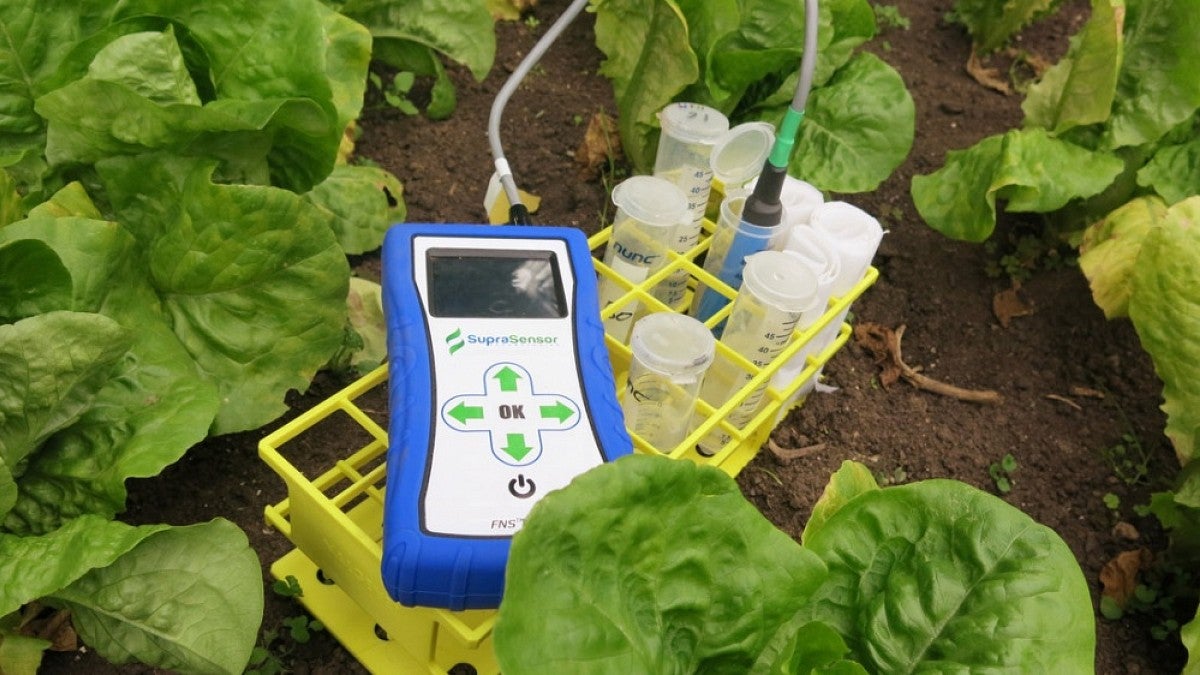Sometimes, scientific breakthroughs happen by chance or mistake — take the example of Alexander Fleming, a British scientist who discovered penicillin in 1928 after noticing patterns in bacteria on the petri dishes in his London lab.
National Public Radio’s annual 2016 Golden Mole Award for Accidental Brilliance honors just such serendipitous events. Former University of Oregon graduate student Calden Carroll, who graduated in 2011, made the short list of nominees for his accidental creation of a molecule that lights up in the presence of nitrate — an accident that has led him away from his original field of chemistry and into the agricultural realm.
“This is great recognition of Calden's hard work,” said Darren Johnson, a professor in the Department of Chemistry and Biochemistry at the UO. “A lot of the ‘accidental discovery’ results from Calden's tenacity and understanding of the market opportunities of his basic science research.”
Carroll is the president and co-founder — along with UO professors Johnson and Michael Haley — of SupraSensor Technologies, a company that is harnessing and developing the innovation of the bright molecule for agricultural purposes. The goal of the company is to avoid the overuse of nitrogen-based fertilizers through SupraSensor’s molecular technologies.
“I think we all want to use really basic scientific curiosity to ask simple questions about how the world works, and then to solve everyday problems with those insights,” Carroll said. “This process is crucial to help demonstrate the impact that a really detailed, elemental understanding of physical and natural processes can have and the value that asking those questions can contribute to everyday life.”
Although Carroll didn’t win the award, his nomination came as a surprise to all. According to professor Haley, Carroll’s discovery was nominated for the award by someone they don’t even know — a testament to the wide-reaching influence of the team’s accidental brilliance.
NPR announced Tuesday morning that the winner of the Golden Mole Award was University of Michigan biologist Elizabeth Tibbets, who accidentally discovered how wasps recognize each other. After forgetting to mark a few of them with tracking paint during a study, she realized that each wasp actually had distinct facial features — and after pursuing this revelation, she discovered their brains are wired to recognize faces.
— By Nathaniel Brown, University Communications intern


